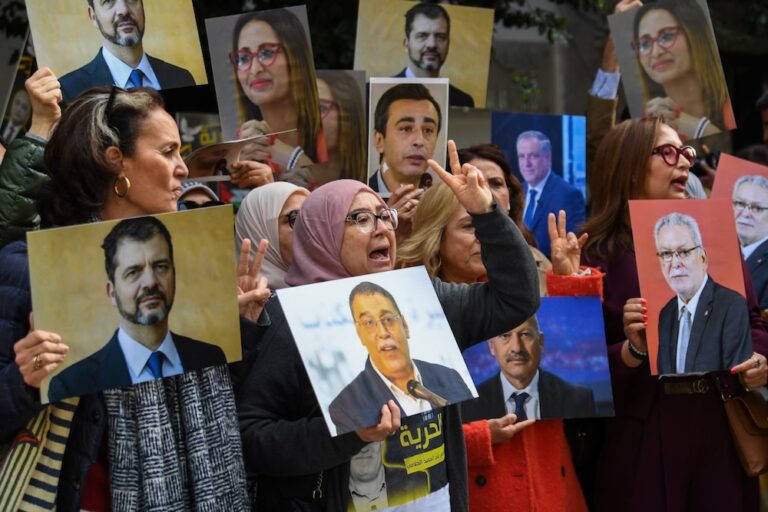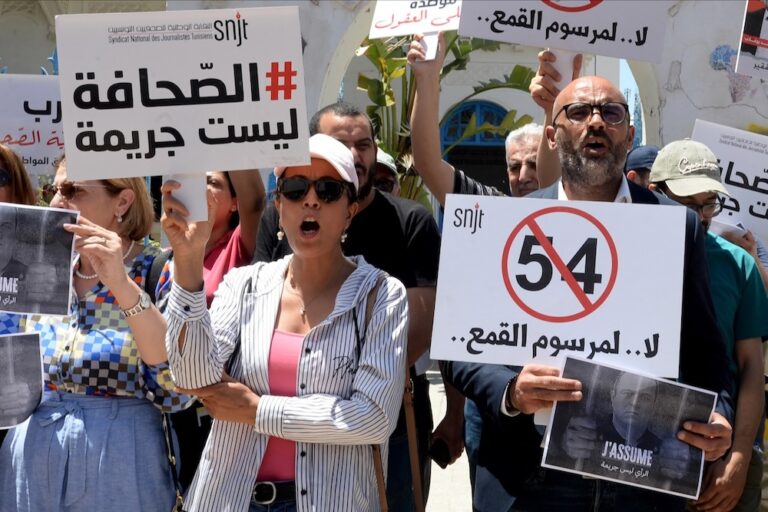(RSF/IFEX) – Reporters Without Borders has voiced its dismay at the Moroccan communications ministry’s 31 October 2008 announcement of a distribution ban on the international edition of the French weekly “L’Express” for “attacking Islam.” The 30 October to 5 November 2008 issue of the weekly had a cover headlined “The shock: Jesus-Mohammed: Their journey, their […]
(RSF/IFEX) – Reporters Without Borders has voiced its dismay at the Moroccan communications ministry’s 31 October 2008 announcement of a distribution ban on the international edition of the French weekly “L’Express” for “attacking Islam.”
The 30 October to 5 November 2008 issue of the weekly had a cover headlined “The shock: Jesus-Mohammed: Their journey, their message, their vision of the world.”
A ten-page article inside presented portraits of the founders of Christianity and Islam days ahead of a meeting in Rome between Muslim and Catholic dignitaries, on the initiative of Pope Benedict XVI, to “promote dialogue” between the two monotheistic religions.
“It is unfortunate that the communications ministry has one again chosen to resort to censorship to have a newspaper banned which was only bringing elements to the debate on an issue in the news that is of major interest to its Moroccan readers,” the worldwide press freedom organisation said.
“This decision is all the more surprising since the Moroccan authorities never stop describing the kingdom as an historic place of dialogue and coexistence between cultures and religions,” it added.
The Moroccan authorities invoked Article 29 of the press code, which authorises banning of publications “when they strike a blow to the Islamic religion, the monarchy, territorial integrity or respect for the king and public order.” The ministry employed this same prerogative against Moroccan weekly “Nichane” in December 2006, after it carried an article headlined “Jokes: how the Moroccans laugh about religion, sex and politics.” “Nichane” was seized again in August 2007, along with its French-language edition “TelQuel”, after it carried an editorial criticising a speech by King Mohammed VI. The issue also published articles dealing with “sex in Islamic culture.”
On 3 November, the Associated Press (AP) reported that Algerian and Tunisian authorities also decided to censor the issue of the French weekly.
“That Algiers and Tunis have decided to follow in Morocco’s footsteps is even more unfortunate. Is the kingdom on the verge of becoming a model for freedom of expression violations in the region?” asked Reporters Without Borders.
Morocco was ranked 122nd out of 173 countries in Reporters Without Borders’ World Press Freedom Index, released on 22 October 2008.
For further information on the “Nichane” and “TelQuel” cases, see: http://ifex.org/en/content/view/full/96849


